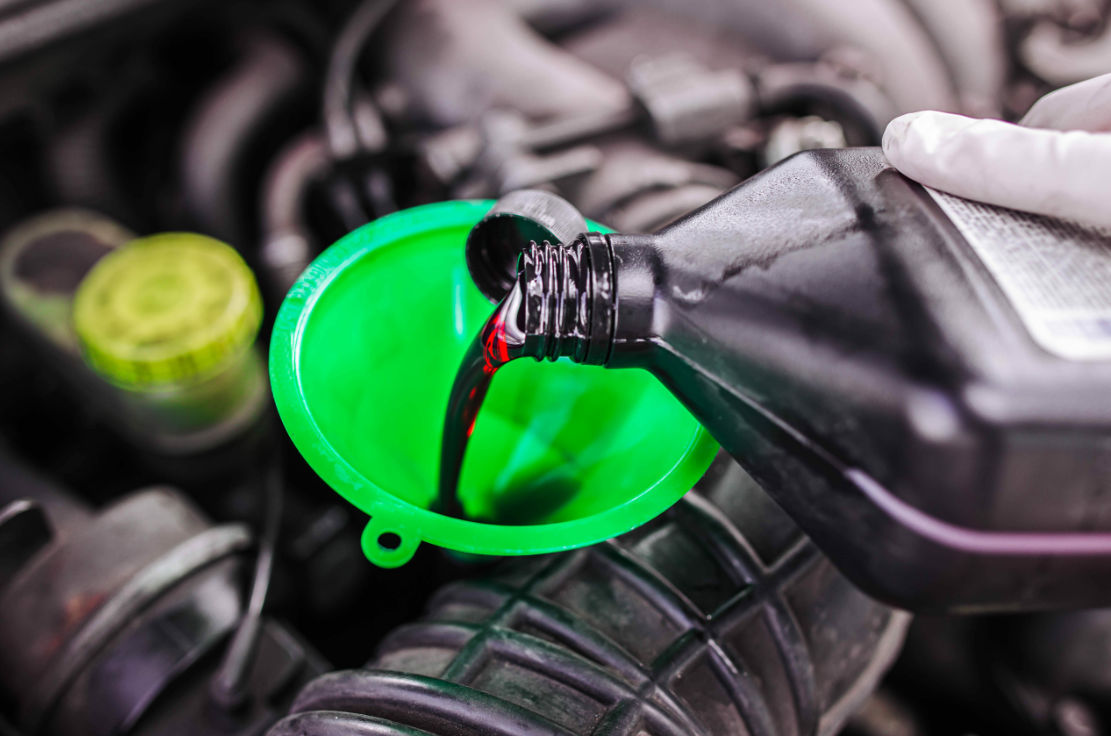 Most people don’t think much about their car’s transmission fluid. In fact, while most people understand, or at least have heard, that regular oil changes and even tire rotations are needed, it’s not as common for people to know about the necessity or importance of changing out their transmission fluid.
Most people don’t think much about their car’s transmission fluid. In fact, while most people understand, or at least have heard, that regular oil changes and even tire rotations are needed, it’s not as common for people to know about the necessity or importance of changing out their transmission fluid.
If you’re taking in your vehicle on a regular maintenance schedule, then your auto mechanic may recommend this as needed or simply take care of it for you. That’s because this vital component of your vehicle needs to be regularly serviced in order to keep your car running smoothly.
So, if you weren’t aware that this was regular maintenance you needed to be paying attention to, here’s a quick primer on everything you need to know about transmission fluid, including when to change it and how to tell if you should have a reputable auto repair mechanic check your transmission fluid.
What is Your Transmission, and Why Does it Need Fluid Changed?
Your car’s transmission is what allows the engine to transfer power to the wheels. The transmission fluid is the lifeblood of your car’s transmission regardless of whether you have a manual transmissions or automatic transmissions. It keeps all the moving parts inside clean and well-lubricated, preventing wear and tear. Over time, though, transmission fluid can become dirty and start to break down, leading to additional mechanical problems. That’s why it’s crucial to have it changed regularly.
Most mechanics recommend changing your transmission fluid routinely during service internals, such as every 30,000 miles or so. However, if you drive in stop-and-go traffic or tow a lot of heavy loads, you may need to change it more often.
When you take your car in for a transmission fluid change, the mechanic will check the fluid, have the fluid drained, and run a cleaner through the system to loosen up debris or deposits that may have built up. When it has run through sufficiently, they will then drain or flush the fluid out and refill it with the recommended fresh and clean transmission fluid.
If you don’t change your transmission fluid when it’s needed, the moving parts inside your transmission can start to grind against each other and cause serious damage. You may also start to notice problems with shifting gears, as the dirty fluid can make it harder for the transmission to move. However, by keeping up with your regularly scheduled and recommended maintenance, you can rest assured that your mechanic or auto body shop will notify you of any maintenance or repairs that need to be dealt with to keep your vehicle running smoothly.
Signs Your Transmission Fluid Needs to be Changed
Low or dirty transmission fluid can cause all sorts of problems, from decreased fuel efficiency to complete engine failure. However, you may be unable to tell that there is a problem until it becomes a significant one. That is why it’s so important to keep up with your vehicle’s regular maintenance. Of course, if you happen to notice that your transmission fluid (pink or red fluid) is leaking or if you have any concerns at all regarding your transmission or its fluid, you should get it in right away.
Changing Your Transmission Fluid
Changing the transmission fluid with fresh fluid is a relatively simple process. Still, it’s important that it’s done correctly and as the manufacturer recommends to avoid damaging the transmission.
HI-TECH Automotive will be happy to do this for you. In addition, by having a locally trusted mechanic handle it for you, we will be able to consistently monitor your vehicle and keep an eye out for any other maintenance or repairs that need to be handled to prevent more significant issues.
Remember, it’s important to keep an eye on your transmission fluid level and condition and to change it according to the recommendations in your car’s owner’s manual. Doing so can help extend your transmission’s life and avoid costly repairs down the road.

